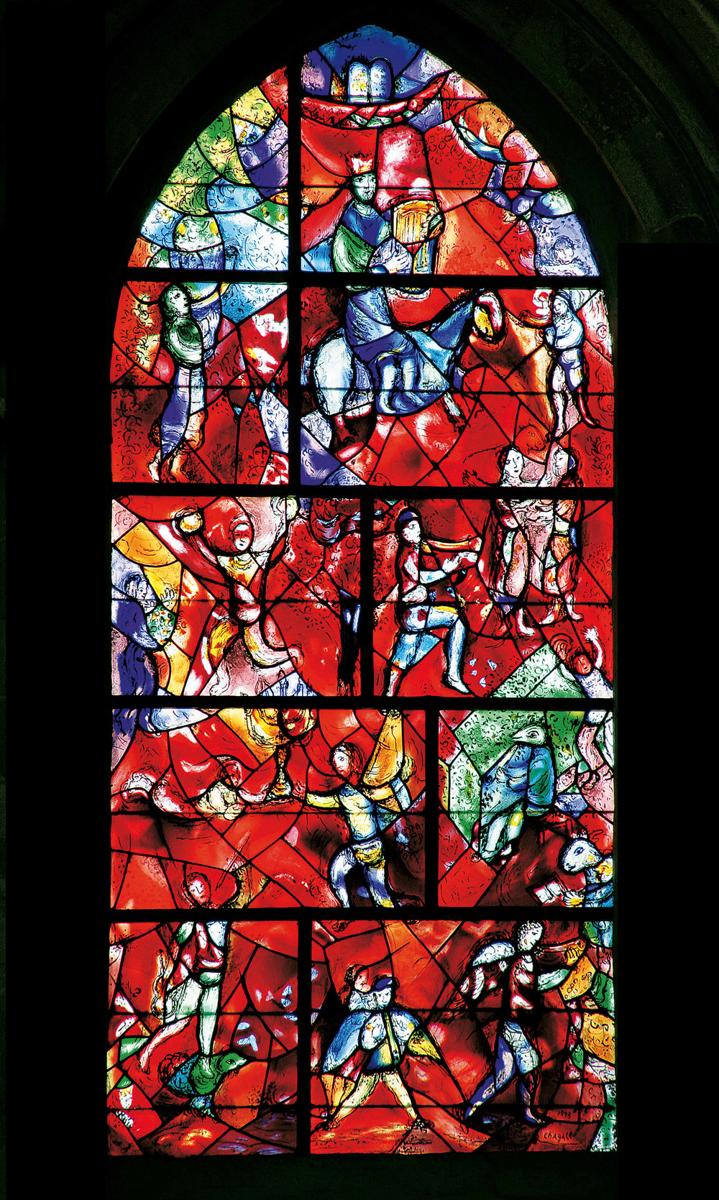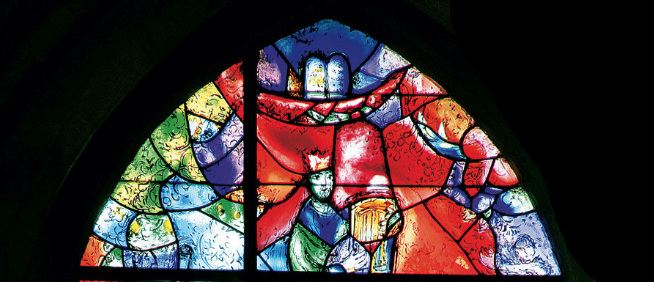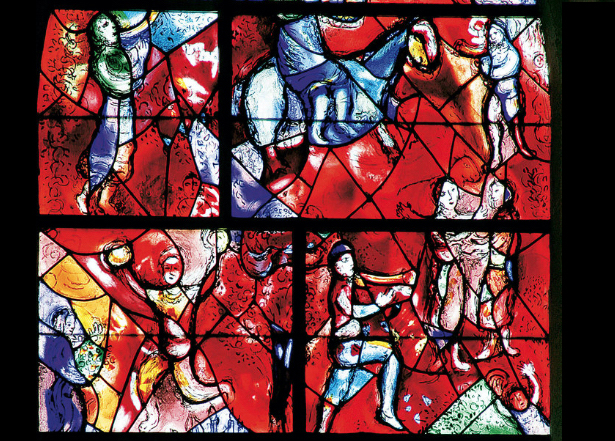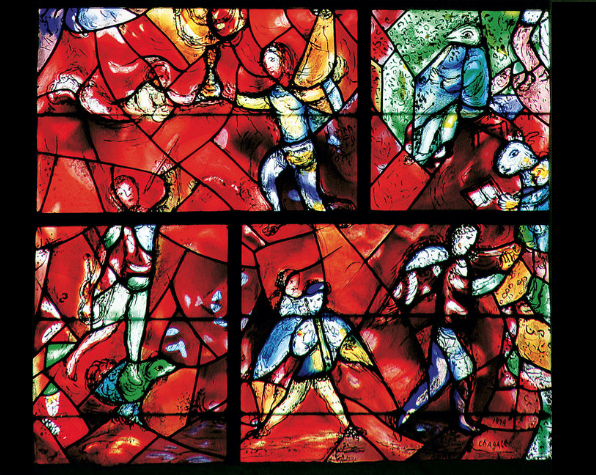December 31: God's Indescribable Gift & Our Response
♫ Music:
Tuesday, December 31
Title: GOD’S INDESCRIBABLE GIFT & OUR RESPONSE
Scripture: 2 Corinthians 9: 6-14
Now this I say, he who sows sparingly will also reap sparingly, and he who sows bountifully will also reap bountifully. Each one must do just as he has purposed in his heart, not grudgingly or under compulsion, for God loves a cheerful giver. And God is able to make all grace abound to you, so that always having all sufficiency in everything, you may have an abundance for every good deed; as it is written, “He scattered abroad, he gave to the poor, His righteousness endures forever.” Now He who supplies seed to the sower and bread for food will supply and multiply your seed for sowing and increase the harvest of your righteousness; you will be enriched in everything for all liberality, which through us is producing thanksgiving to God. For the ministry of this service is not only fully supplying the needs of the saints, but is also overflowing through many thanksgivings to God. Because of the proof given by this ministry, they will glorify God for your obedience to your confession of the gospel of Christ and for the liberality of your contribution to them and to all, while they also, by prayer on your behalf, yearn for you because of the surpassing grace of God in you. Thanks be to God for His indescribable gift!
Poetry:
Consolation
By Wislawa Szymborska
Darwin.
They say he read novels to relax,
But only certain kinds
nothing that ended unhappily.
If anything like that turned up,
enraged, he flung the book into the fire.
True or not,
I'm ready to believe it.
Scanning in his mind so many times and places,
he'd had enough of dying species,
the triumphs of the strong over the weak,
the endless struggles to survive,
all doomed sooner or later.
He'd earned the right to happy endings,
at least in fiction
with its diminutions.
Hence the indispensible
silver lining,
the lovers reunited, the families reconciled,
the doubts dispelled, fidelity rewarded,
fortunes regained, treasure uncovered,
stiff-necked neighbors mending their ways,
good names restored, greed daunted,
old maids married off to worthy parsons,
troublemakers banished to other hemispheres,
forgers of documents tossed down the stairs,
seducers scurrying to the altar,
orphans sheltered, widows comforted,
pride humbled, wounds healed over,
prodigal sons summoned home,
cups of sorrow thrown into the ocean,
hankies drenched with tears of reconciliation,
general merriment and celebration,
and the dog Fido,
gone astray in the first chapter
turns up barking gladly
in the last.
GOD’S INDESCRIBABLE GIFT AND OUR RESPONSE
We live in a culture that encourages consumption. Subtly, it creeps into our faith and spiritual practices. We follow famous Christians on Instagram, we read our Bible on shiny smartphones, we have our quiet times in fancy coffee shops, we take God’s gifts, we buy our products, we feel #blessed. Meanwhile, Scripture admonishes us to give. A generous spirit not only ties into obedience and wise stewardship of resources—the gifts God entrusts us—but also evokes deep gratitude for God’s eternal gifts: “We bless thee for our creation, preservation, and all the blessings of this life; but above all, for thine inestimable love in the redemption of the world by our Lord Jesus Christ; for the means of grace, and for the hope of glory” (Book of Common Prayer 19). As today’s featured artwork, Marc Chagall’s splendid stained glass, urges us, “Let everything that has breath praise the Lord!”
A deeper understanding of this blessed reality will create in us a natural kind of generosity, making us a “cheerful giver.” I find this to be a curious cyclical experience: Cheerful giving is commendable, and I grow more cheerful the more freely I give. It’s a spiritual principle that, when enacted, is self-fulfilling. We get to enjoy God’s gifts intimately and personally, growing closer to him; and also communally—for his gifts are to be shared.
Sometimes we might think that extravagant generosity sounds great in theory, but life is also full of practical concerns. If I give too freely, don’t I risk having nothing left? We can get cautious with our giving—our money, time, energy, attention. This cautiousness can supersede generosity. But the cheerful-giver principle is counterintuitive, even practically speaking. According to a body of empirical research [link: https://generosityresearch.nd.edu/] by Christian Smith and his collaborators at Notre Dame, generosity has concrete, measurable benefits. People who give more tend to have more—not only more resources, but also more contentment, peace, joy, and even room for more generosity. Thus the practical/spiritual dichotomy proves fictitious: if we live true to our faith, those two domains merge and we become “enriched in everything for all liberality.” Smith writes:
By grasping onto what we currently have, we lose out on better goods that we might have gained. In holding onto what we possess, we diminish its long-term value to us. By always protecting ourselves against future uncertainties and misfortunes, we are affected in ways that make us more anxious about uncertainties and vulnerable to future misfortunes. In short, by failing to care for others, we do not properly take care of ourselves. (1)
Are we, then, to hold anything back? Are we to give only out of our safe reserves—sowing sparingly—or should we, like the widow in the Gospels (Mark 12:41–44, Luke 21:1–4), give back to God and to our neighbor all that we’ve been given? The answer is obvious. Rather than only giving out of abundance, we are to give with abandon. As Donald Demarco writes, “To live authentically is to give generously of oneself.” He then adds the challenging question, “What are the limits of generosity? Since virtue is rooted in love, this question is tantamount to asking, ‘What are the limits of love?’”
Let us pray.
Prayers:
Eternal Word, only begotten Son of God,
Teach me true generosity.
Teach me to serve you as you deserve.
To give without counting the cost,
To fight heedless of wounds,
To labor without seeking rest,
To sacrifice myself without thought of any reward
Save the knowledge that I have done your will.
Amen.
– St. Ignatius of Loyola
Almighty God, who hast given us thy only-begotten Son to take our nature upon him, and as at this time to be born of a pure virgin: Grant that we being regenerate, and made thy children by adoption and grace, may daily be renewed by thy Holy Spirit; through the same our Lord Jesus Christ, who liveth and reigneth with thee and the same Spirit ever, one God, world without end. Amen. (104)
– Collect for the First Week after Christmas Day, according to The Book of Common Prayer
Book Recommendations:
The Book of Common Prayer (1928 ed.)
The Paradox of Generosity: Giving We Receive, Grasping We Lose by Christian Smith & Hilary Davidson
Elmar Hashimov, PhD
Associate Professor
Dept of English
Biola University
For more information about the artwork, music, and poetry selected for this day, we have provided resources under the “About” tab located next to the “Devotional” tab.
About the Artwork:
Let Everything That Hath Breath Praise the Lord (4 images)
Marc Chagall
Stained glass window
1978
Chichester Cathedral
Chichester, England
Marc Chagall's stained glass window design in Chichester Cathedral is a brilliant visual interpretation of the great song of praise which we know as Psalm 150: "O praise God in His holiness...Let everything that has breath praise the Lord." The composition includes several individuals who are all in a festive mood, glorifying the Lord and exalting his greatness and his creation. The musicians are playing the instruments referred to in the psalm: horn, drum, flute, strings and cymbals. A man juxtaposed with an animal at the right edge of the composition holds open a little book, indicating that the word too participates in this hymn of praise. In the center, two figures hold up a menorah while David, author of the psalm, crowns the whole composition as he plays his harp. Unlike the rich blue colors that characterize much of Chagall’s glasswork, the primary color of this window is a brilliant red that mirrors the colors of the famed Benker Schirmer tapestry, which is displayed in close proximity. While the window depicts people worshipping using instruments and song, the artistic beauty of the window is also a form of worship in and of itself.
https://www.chichestercathedral.org.uk/visiting/cathedral-plan/delve-deeper-marc-chagall-window
About the Artist:
Marc Chagall (1887–1985) was a Russian-French artist of Belarusian Jewish origin. An early Modernist, Chagall was associated with several styles and created work in virtually every artistic medium and format, including painting, book illustrations, stained glass, stage sets, and fine art prints. Chagall's poetic, figurative style made him one of the most popular of modern artists. While many of his peers pursued ambitious experiments that often led to abstraction, Chagall's distinction lies in his steady faith in the power of figurative art, one that he maintained despite absorbing ideas from Fauvism and Cubism. Chagall's Jewish identity was important to him throughout his life, and much of his work can be described as an attempt to reconcile old Jewish traditions with styles of modernist art. However, he also occasionally drew on Christian themes, which appealed to his taste for narrative and allegory. In the 1920s, the emerging Surrealists claimed Chagall as a kindred spirit although he ultimately rejected their more conceptual subject matter. Pablo Picasso remarked in the 1950s, "When Matisse dies, Chagall will be the only painter left who understands what colour really is."
https://www.marcchagall.net/
About the Music:
“3 Etudes de Concert, S.144: No. 3 in D Flat 'Un Sospiro' (Allegro affettuoso)” from the album Ultimate Liszt: The Essential Masterpieces
About the Composer:
Franz Liszt (1811–1886) was a Hungarian composer, virtuoso pianist, conductor, music teacher, arranger, and organist of the Romantic era. He was also a writer, a philanthropist, a Hungarian nationalist, and a Franciscan tertiary. Liszt gained renown in Europe during the early nineteenth century for his virtuosic skill as a pianist. He was a friend, musical promoter, and benefactor to many composers of his time, including Frederic Chopin, Richard Wagner, Robert Schumann, Camille Saint-Saens, Edvard Grieg, and Alexander Borodin. A prolific composer, Liszt was one of the most prominent representatives of the New German School. He left behind an extensive and diverse body of work that influenced his forward-looking contemporaries and anticipated 20th-century ideas and trends. Among Liszt's musical contributions were the symphonic poem, developing thematic transformation as part of his experiments in musical form, and radical innovations in harmony.
https://en.wikipedia.org/wiki/Franz_Liszt
About the Performer:
Claudio Arrau (1903–1991) was a Chilean pianist known for his interpretations of a vast repertoire spanning the Baroque to 20th-century composers, especially Bach, Beethoven, Schubert, Chopin, Schumann, Liszt, and Brahms. He is widely considered to be one of the greatest pianists of the twentieth century. British conductor Sir Colin Davis said: "His devotion to Liszt is extraordinary. He ennobles that music in a way no one else in the world can." Arrau was an intellectual and a deeply reflective interpreter. Arrau preached fidelity to the musical score, but also the use of imagination in interpretation. Although he often played with slower and more deliberate tempi from his middle age onward, he had a reputation as a fabulous virtuoso earlier in his career, a reputation supported by recordings he made at this time. Describing his work in a 1975 interview, Mr. Arrau said: "I try to play the way a cat jumps. It must be completely natural. I have promised myself that whenever I feel a kind of routine creeping into my playing, I will stop. Now when I play I am almost in ecstasy, a creative ecstasy, which I wouldn't miss for anything. This is what I live for."
https://en.wikipedia.org/wiki/Claudio_Arrau
About the Poet:
Maria Wislawa Anna Szymborska (1923–2012) was a Polish poet, essayist, translator, and recipient of the 1996 Nobel Prize in Literature. In Poland, Szymborska's books have reached sales rivaling prominent prose authors, although she once remarked in a poem that no more than two out of a thousand people really cared for poetry. Szymborska was awarded the 1996 Nobel Prize in Literature for “poetry that with ironic precision allows the historical and biological context to come to light in fragments of human reality.” Her work has been translated into English and many European languages, as well as into Arabic, Hebrew, Japanese, Persian, and Chinese.
https://www.poetryfoundation.org/poets/wisaawa-szymborska
About the Devotion Writer:
Elmar Hashimov, PhD
Associate Professor
Dept of English
Biola University
Elmar Hashimov is an associate professor of English at Biola, where he teaches and researches rhetoric, writing, philology, and film. He also directs the university writing center and coordinates writing across disciplines. Elmar has written for a variety of publications, including The Atlantic and Technical Communication Quarterly. He currently serves as the president of the Southern California Writing Centers Association.



